Major topics at China's 2019 NPC & CPPCC
scio.gov.cn,March 15, 2019 Adjust font size:
China's 2019 two sessions – the annual sessions of the National People's Congress (NPC) and the National Committee of the Chinese People's Political Consultative Conference (CPPCC) – is drawing to a close. As the country's most important political gathering, the event has attracted domestic and worldwide attention with various items on the agenda. Here are eight major topics from this year's sessions, with comments from Chinese officials and China watchers around the world:
High-quality growth
In this year's government work report, China sets its gross domestic product (GDP) growth target for 2019 at 6-6.5 percent, and vows to promote high-quality and sustainable growth.
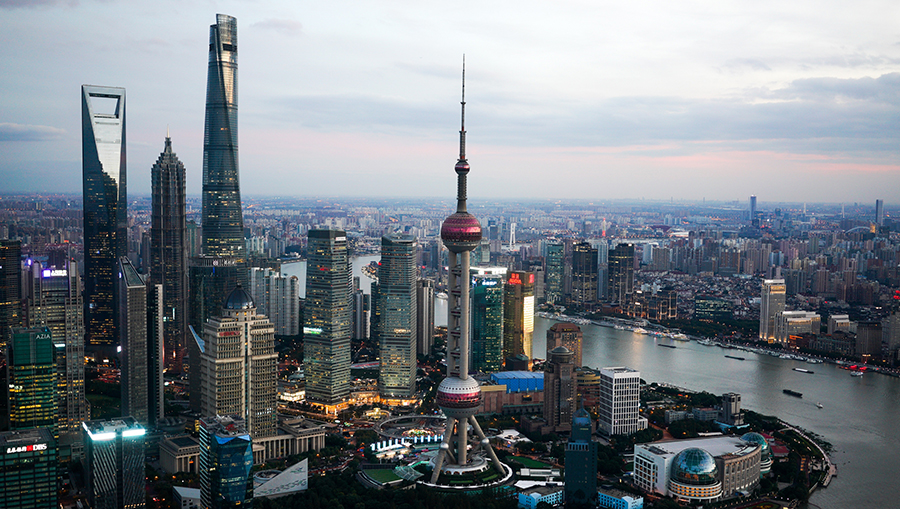
Taken on Nov. 1, 2018 shows the scenery of Shanghai, east China. [Photo/Xinhua]
Huang Shouhong, head of the State Council Research Office and the drafting group for the government work report:
The growth rate range has taken domestic and external factors into account.
It is acceptable for China's economic growth to be faster or slower, as long as more jobs are created, income rises and the environment improves.
Gerry Rice, director of the Communications Department at the International Monetary Fund (IMF):
China's economic growth target for this year will allow policy makers to focus on improving the quality of growth.
As China shifts the economic model from less export orientation to more domestic consumption, (in regards to) the quality quantity issue, this is an appropriate step.

Exhibitors examine a soil-less vegetable cultivation device at the 29th East China Fair in Shanghai earlier this month. [Photo/China Daily]
Harley Seyedin, president of the American Chamber of Commerce in South China:
For foreign companies in China, I think everyone is waiting for the draft law to be passed, as the law will create a level playing field where everyone can participate.
Ma Zheng, vice president of the China subsidiary of the agricultural commodities trader Cargill:
The draft stresses more investment promotion and protection than the three existing laws, a positive signal for foreign firms in China.
Tax and fee cuts
According to the government work report, China will reduce the tax burdens and social insurance contributions of enterprises by nearly 2 trillion yuan (about US$298 billion) this year. Such massive cuts will benefit a wider range of companies and people.
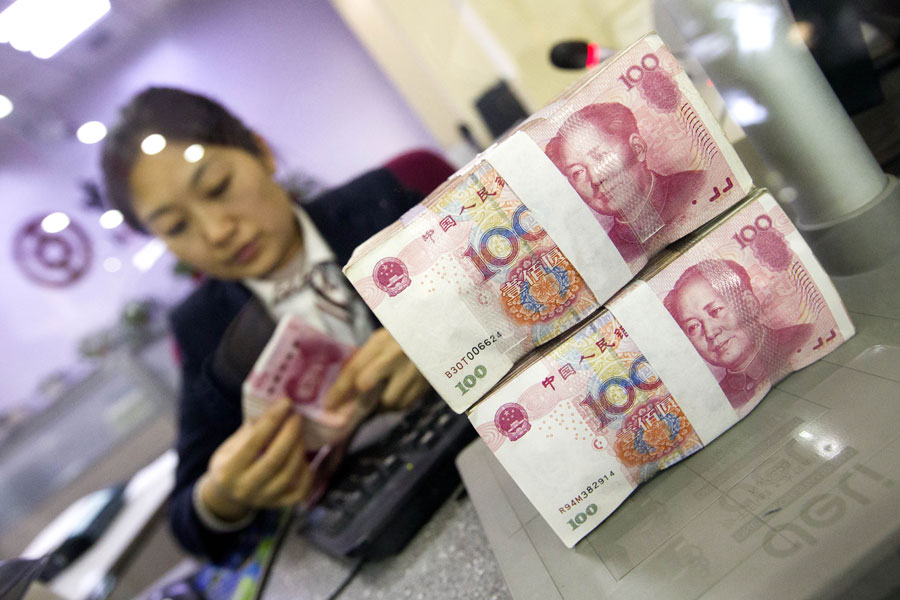
At a bank in Taiyuan, Shanxi province, counts renminbi notes. [Photo/China News Service]
Wang Jun, head of the State Taxation Administration:
This scale of tax cuts and fee reductions has rarely been seen over the past decades, both inside and outside China. It demonstrates the resolution, confidence, wisdom and power of our Party and government to overcome difficulties and make great efforts to build a strong state.
Cheng Shi, chief economist at ICBC International:
Bigger-than-expected steps to slash taxes can help manufacturers move upward in the global industrial value chain and better deal with temporary difficulties.
Moderately prosperous society
2019 is regarded as a pivotal year for China to complete the building of a moderately prosperous society in all respects, and the country is on the fast track toward that goal.
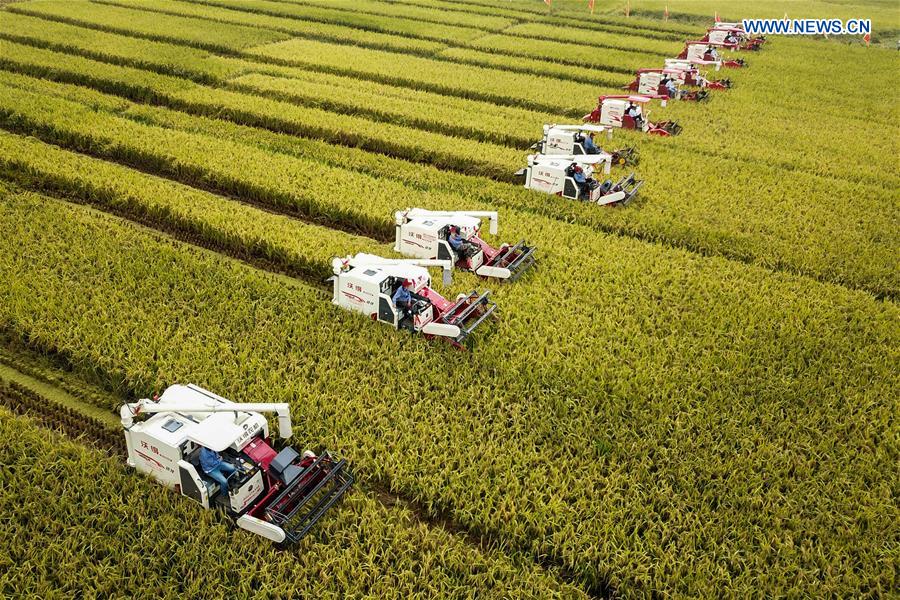
Harvest rice in Huanghuatang township, Xuyi county of Huai'an, east China's Jiangsu province, Sept. 20, 2018. [Photo/Xinhua]
Liu Shangxi, head of the Chinese Academy of Fiscal Sciences:
Building a moderately prosperous society in all respects will be a great achievement on the way toward national rejuvenation. It will be a miracle in human history to enable more than 1 billion people to completely get rid of poverty and enter common prosperity.
Masood Khalid, Pakistani ambassador to China:
I have no doubt that as in the past resilient Chinese people will achieve national targets set forth by the Communist Party of China under the leadership of President Xi Jinping to create a moderately prosperous society by 2020.
Poverty alleviation
With only two years left for China to meet the deadline in its war against extreme poverty, the country's efforts on poverty alleviation become one of the most important topics during the two sessions. Official figures show that over the past 40 years, China has lifted more than 700 million of its rural residents out of poverty. This year, China pledges to reduce its rural poor population by over 10 million in its government work report.
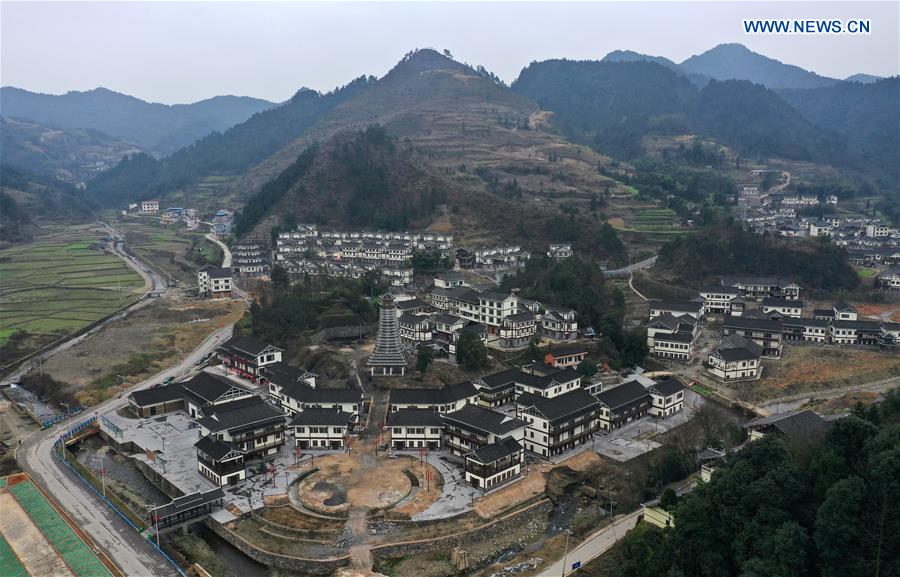
Photo taken on Feb. 28, 2019 shows the Yunqi poverty alleviation settlement in Yuping Dong autonomous county of Tongren, southwest China's Guizhou province. [Photo/Xinhua]
Craig Allen, president of the U.S.-China Business Council:
For me, it is just a miracle that over 40 years, over the course of one working lifetime, China has gone from one of the poorest countries in the world to one that is about to eliminate absolute poverty.
David Monyae, director of the Centre for Africa-China Studies at the University of Johannesburg:
China has shown the world that it is possible to tackle poverty. The serious and sustained commitment made by the government, backed by tough anti-corruption policies, has given the strategy necessary momentum to achieve the current milestones.
Guangdong-Hong Kong-Macao Greater Bay Area
One of the hotly debated issues during the two sessions is the development of the Guangdong-Hong Kong-Macao Greater Bay Area. The Chinese authorities in February unveiled an outline of the development plan for the Greater Bay Area, aiming to build it into a role model of high-quality development, an international first-class bay area, and a world-class city cluster.
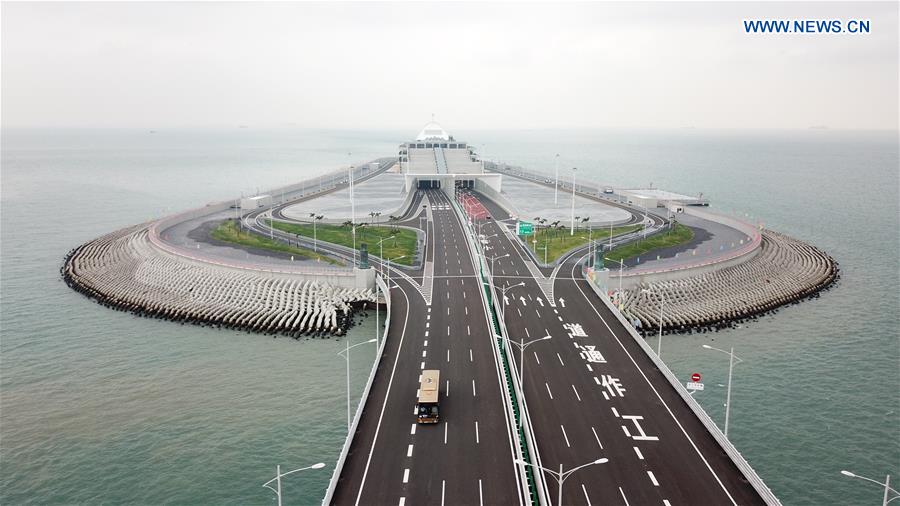
Photo taken on Oct. 24, 2018 shows a vehicle running on the Hong Kong-Zhuhai-Macao Bridge. [Photo/Xinhua]
Kenneth Fok Kai-kong, a Hong Kong member of the 13th CPPCC National Committee:
The Guangdong-Hong Kong-Macao Greater Bay Area is a region where 11 member cities will be closely integrated and form a one-hour living circle, and the region will be a home for Hong Kong's young to pursue futures.
Li Xi, Party secretary of Guangdong province:
It is necessary to promote the construction of pivotal cities, and boost infrastructure connectivity and a modern industrial system, in order to develop the Bay Area into a world-class city cluster.
Belt and Road Initiative
The Belt and Road Initiative (BRI) has also caught wide attention during the two sessions. First proposed in 2013, the initiative refers to the Silk Road Economic Belt and the 21st Century Maritime Silk Road, and aims to build a trade and infrastructure network connecting Asia with Europe, Africa, and beyond. According to the Ministry of Foreign Affairs, a total of 123 countries and 29 international organizations have signed BRI agreements with China.
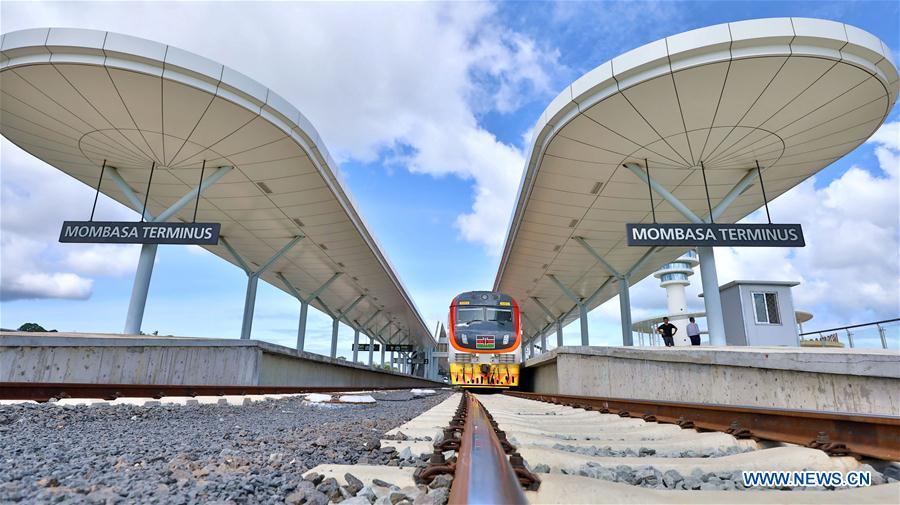
Seen at Mombasa station of the China-funded Mombasa-Nairobi Standard Gauge Railway (SGR) in Kenya, June 1, 2018. [Photo/Xinhua
Keith Bennett, vice chairman of Britain's 48 Group Club:
The BRI is inclusive and offers the greatest opportunity for both investment and development in decades.
Its emphasis on infrastructure and connectivity lays the best possible foundations for promoting all-round, comprehensive economic development and improvement of people's livelihood in the future.
Zhou Li, vice president of the Chinese People's Association for Peace and Disarmament:
The BRI is significant in uniting the international community by advancing a new form of international relations, featuring mutual respect, fairness and justice, and win-win cooperation, in addition to the building of a community with a shared future for mankind.
Further opening up
China has made decades-long efforts in opening up, so as to maintain domestic growth momentum and contribute more to the world economy. At this year's two sessions, China pledges to open more sectors and improve the process of opening up. The government work report says the country will continue to promote opening up based on flows of goods and factors of production, and give greater emphasis to opening up based on rules and related institutions.
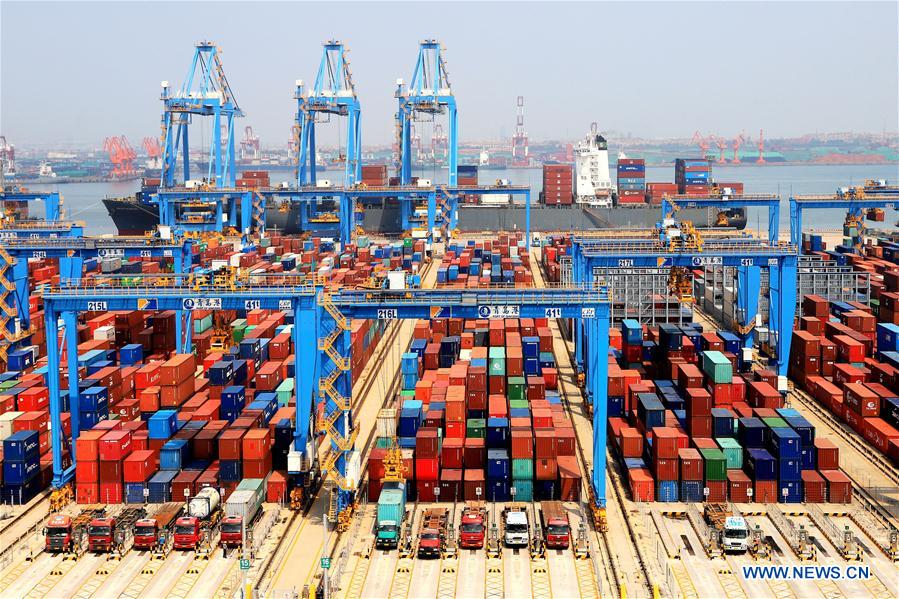
Taken on May 16, 2018 shows an automatic container dock in Qingdao, east China's Shandong province. [Photo/Xinhua]
Wei Jianguo, vice president of the China Center for International Economic Exchanges:
China's continued push to further open up the economy will advance domestic economic prosperity while injecting fresh vitality into the global economy.
Alfred Schipke, IMF senior resident representative for China:
Further opening up, especially related to the service sector, is very important. I think it will bring big benefits for China and big benefits to all countries.
